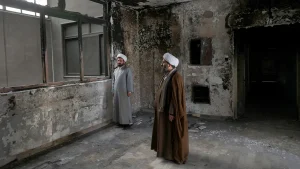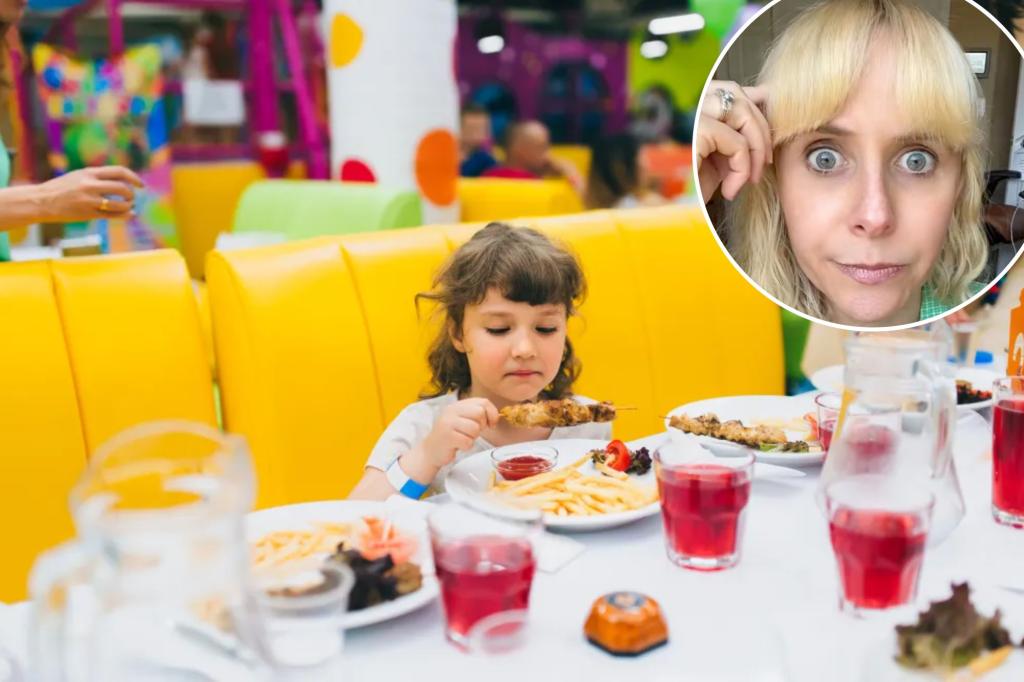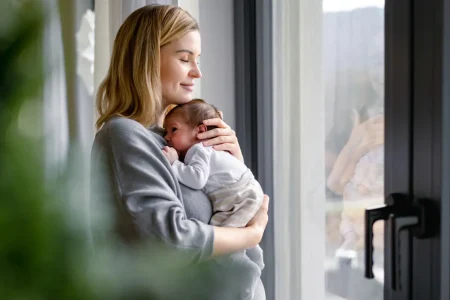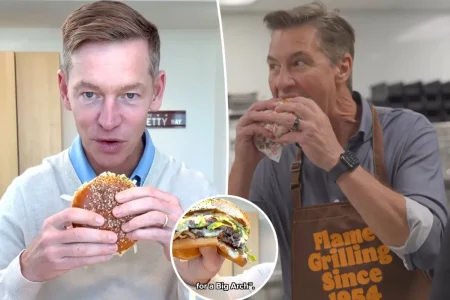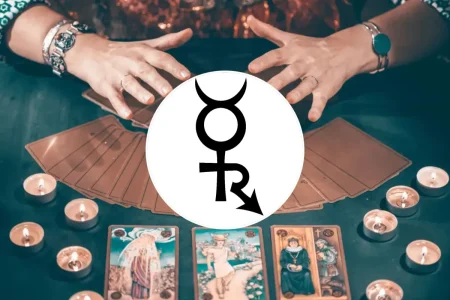When Personal Parenting Choices Affect Others: A Modern Dilemma
Julia Austin recently shared an experience on TikTok that sparked a heated conversation about parental responsibility and the impact of children’s behavior on strangers. Her story highlights the complex intersection between personal parenting choices and public accountability, resonating with many who have found themselves in similar situations.
During a meal at a restaurant, Austin found herself seated next to a family with two young children who were playing with bottles of juice – an activity that might raise eyebrows given the potential for spills. As many might predict, this playtime eventually led to an accident when one of the children lost control of their bottle, spilling juice all over Austin’s $200 suede jacket. What makes this story particularly striking is not just the incident itself, but the mother’s reaction. When a concerned server rushed to help with the cleanup, the mother dismissively commented, “Oh, her jacket’s fine” – seemingly unconcerned about the damage to a stranger’s expensive property. This casual dismissal of responsibility struck a chord with viewers, who flooded the comment section with support for Austin and criticism of what many saw as an entitled parenting attitude.
The incident raises important questions about the boundaries of parental responsibility in public spaces. While how one chooses to discipline their children is indeed a personal matter, those choices can have consequences that extend beyond the family unit. Many commenters on Austin’s video expressed frustration with what they perceived as a growing trend of parents who are unwilling to hold their children accountable for their actions. One commenter, who identified as both a server and hairstylist, suggested that “parents are lazy these days and don’t want to discipline their kids anymore,” while others insisted that the mother should have offered to pay for cleaning the jacket since she was ultimately responsible for her children’s behavior. The sentiment that “mistakes happen but it was a preventable mistake” captures the nuance of the situation – acknowledging children’s imperfections while maintaining that parents have a duty to mitigate risks.
This incident exists within a broader cultural conversation about parenting approaches and accountability. Many viewers shared their own experiences of having personal property damaged by children whose parents showed little concern or offered no recompense. One commenter described having a child wipe “dirty sticky hands” on their silk dress, with the parents not even offering to cover dry cleaning costs. These anecdotes suggest that Austin’s experience was not an isolated incident but part of what some perceive as a troubling pattern of parental entitlement. The strong reaction to Austin’s video – garnering over 250,000 views – indicates that this topic touches a nerve in contemporary society, where expectations about parental responsibility and public behavior sometimes clash.
The debate extends beyond simple property damage to more fundamental questions about how parents should prepare their children for navigating social situations. In a parallel example, Louisiana mother Brittany Norris recently sparked controversy with her admission that she teaches her children to physically defend themselves rather than seek help from authorities. Her statement that “If someone hits my kid, I’m not raising them to go tell the teacher. Not raising a snitch” represents another parenting approach that prioritizes self-reliance over institutional intervention. While Norris’s perspective differs from the situation Austin encountered, both cases highlight the diversity of parenting philosophies that exist and how they can sometimes conflict with broader social expectations.
At its core, this debate reflects a fundamental tension in modern parenting: balancing the desire to respect individual parenting choices with the need for social accountability. Most people would agree that parents should have significant latitude in raising their children according to their values. However, when those choices impact others – whether through damaged property, physical confrontation, or other means – the question of responsibility becomes more complex. Austin’s experience serves as a reminder that parenting doesn’t happen in isolation; it occurs within a social context where actions have consequences beyond the family unit. The overwhelming public support for Austin suggests that many people believe parents should take responsibility when their children’s behavior affects others, regardless of their personal disciplinary approach. Perhaps the most constructive path forward involves acknowledging both the challenges of parenting and the importance of teaching children to respect others’ boundaries and property – a balance that benefits not only those around them but also the children themselves as they learn to navigate an interconnected world.
